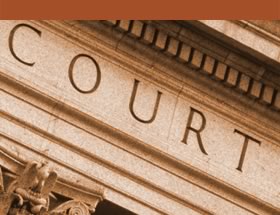Untruthful officer results in IRP overturned
It finally happened - a successful battle of credibility with a police officer in relation to an Immediate Roadside Prohibition (IRP).
As you've probably heard, Mr. Armour has helped many clients over the past few years with respect to fighting numerous IRPs for various reasons, but up until this past week, every successful argument he'd made had been won for a "legal argument" or a "technicality" as opposed to on grounds of credibility. In cases involving questions of credibility (ie. "the police officer says X occured, but the client says it was really Y") the adjuicators at the Office of the Superintendent of Motor Vehicles have ALWAYS sided with the police. In fact, it got so bad that Mr. Armour would jokingly warn his clients about the unspoken "presumption of guilt" when it came to dealing with an IRP. (As you of course know, in a criminal court with a Judge, all people are supposed to be presumed innocent, but when it came to fighting with the OSMV or ICBC, everyone seemed to be presumed guilty).
But such is not the case for one of Mr. Armour's most recent clients. In this instance the officer swore an affidavit saying that he had advised the Defendant of his right to provide a second blow on a second machine, and that he blew two "fails" on two different machines. The officer even included calibration certificates for two different devices with two different serial numbers, much as is probably the same as in your case if you're reading this. However, despite the renouned "presumption of guilt", Mr. Armour's client adamantly maintained that the officer was lying about having two machines and that both tests were taken on the same device. The adjudicator who decided the matter - while not directly calling the officer a liar - noted a number of inconsistencies pointed out by Mr. Armour in relation to the officer's evidence which caused the adjudicator fo say that he was unable to conclude on a balance of probabilities that the officer was correct about the client's tests being taken on two different machines despite his insistence that they were. As such, the prohibition was quashed and Mr. Armour's client is already back on the road with his car out of the impoundment lot.
While this was a very rare result, and the presumption of guilt is likely still very much alive in most other cases, It just goes to show that even when you think your chances of winning are about zero, if you come see Mr. Armour for a consultation, he'll be able to better advise you if there's any hope whatsoever.








